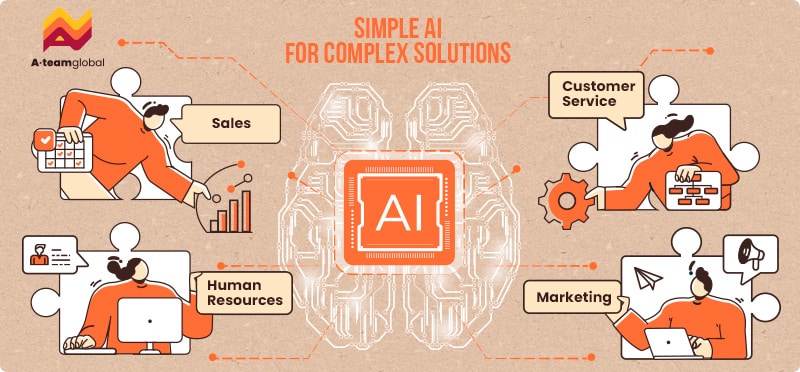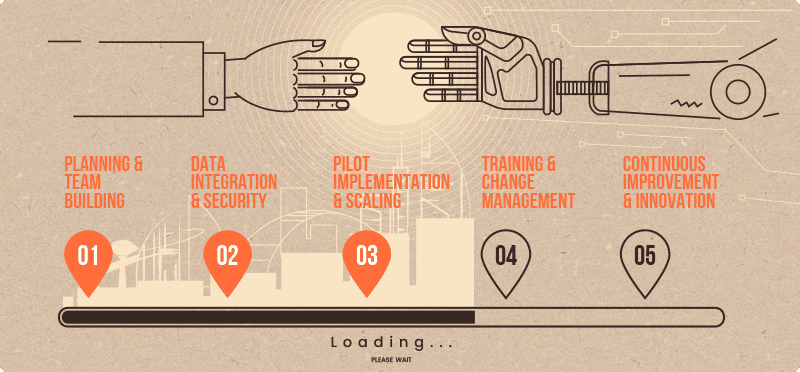Overview of IoT app development tools
Here's an overview of some of the popular IoT development software:
- Arduino IDE, a popular tool for programming Arduino boards.
- Raspberry Pi. There are several programming languages and tools available for developing IoT applications on Raspberry Pi, including Python and Node-RED.
- AWS IoT ( Amazon Web Services (AWS) offers a suite of tools for developing IoT applications.
- Microsoft Azure IoT provides a range of tools for developing and managing IoT applications.
- Google Cloud IoT provides a set of tools for building and managing IoT applications including device management, data processing, and analytics.
- IBM Watson IoT also provides a suite of tools for developing and managing IoT applications.
- KaaIoT is an open-source platform for building IoT applications.
- ThingWorx is an IoT platform developed by PTC. It provides a suite of tools for building, deploying, and managing IoT applications.
- Ubidots is a cloud-based platform for building IoT applications. It provides a range of tools for device management, data processing, and analytics.
These are just a few examples of the many IoT app development tools available. The choice of tool will depend on the specific requirements of the project and the preferences of the development team.
Criteria for selecting the best IoT app development tools
Selecting the best software for IoT can be a complex task, as there are many different tools and platforms available, each with its own strengths and weaknesses. However, some key criteria to consider when evaluating IoT app development tools include:
Compatibility
The tool should be compatible with the IoT platform and hardware devices you plan to use. Ensure that the tool supports the communication protocols and standards that your IoT devices and platform require.
Ease of use
Look for a tool that has an intuitive interface and a user-friendly environment. The tool should have good documentation and provide ample support to help developers get started and resolve any issues that may arise.
Security
Security is of utmost importance when it comes to IoT development. Look for tools that offer features such as encryption, authentication, and access control to ensure that your IoT apps and devices are secure.
Scalability
The tool should be able to support the growth of your IoT app and platform as more devices are added to the system. Ensure that the tool can handle the increasing data volume and complexity that comes with scaling up.
Customizability
Every IoT project is unique, so it's important to look for a tool that is flexible and can be customized to meet the specific needs of your project. Look for tools that provide access to source code, APIs, and plug-ins, and that allow for easy integration with other tools and platforms.
Cost
IoT app development tools can be expensive, so it's important to evaluate the cost of each tool in relation to your project budget. Look for tools that offer flexible pricing plans and that provide a good return on investment.
By evaluating tools based on these criteria, you can identify the best IoT app development tools for your project, and ensure that your app is secure, scalable, and customized to meet your specific needs.
IoT platforms
There are many IoT platforms available that offer tools for developing IoT applications. Here are some popular ones:
Amazon Web Services (AWS) IoT Platform: AWS IoT is a fully-managed cloud platform that provides a comprehensive set of services to securely connect, manage, and collect data from IoT devices.
Google Cloud IoT: Google Cloud IoT is a fully-managed platform that provides the infrastructure and tools to securely connect, manage, and ingest data from IoT devices.
Microsoft Azure IoT: Microsoft Azure IoT provides a suite of services and tools for building and deploying IoT applications, including device management, data analytics, and machine learning.
IBM Watson IoT: IBM Watson IoT provides a platform for building and managing IoT applications, with services that include device management, data analytics, and cognitive computing.
ThingsBoard: ThingsBoard is an open-source IoT platform that provides device management, data visualization, and rule-based automation.
Particle: Particle is a cloud-based IoT platform that provides tools for building, connecting, and managing IoT devices. Its services include device management, data visualization, and over-the-air updates.
Ubidots: Internet of Things (IoT) data platform that enables businesses and individuals to collect, store, and analyze data from connected devices. Ubidots provides a cloud-based platform that can be used to create custom dashboards, graphs, and alerts for real-time monitoring and control of IoT devices and systems.
These platforms offer a range of tools and services to help developers build and deploy IoT applications. The choice of platform will depend on the specific requirements of the project, such as scalability, security, and integration with other systems.
IoT development kits and frameworks
There are a variety of IoT tools and technologies, development kits, and frameworks available in the market. Here are some of the best ones:
Raspberry Pi: Raspberry Pi is a popular IoT development kit that is affordable, versatile, and easy to use. It is a small computer that can be used to build a variety of IoT projects.
Arduino: Arduino is another popular IoT development kit that is easy to use and allows developers to build a variety of IoT projects. It is also affordable and versatile.
Android Things: Android Things is a platform for building IoT devices that runs on the Android operating system. It provides a set of tools and APIs for building IoT applications.
ThingWorx: ThingWorx is an IoT development platform that provides a set of tools for building IoT applications. It provides features such as real-time data processing, security, and device management.
OpenHAB: OpenHAB is an open-source home automation platform that allows developers to build IoT applications for home automation.
Kaa: Kaa is an open-source IoT development platform that provides a set of tools for building IoT applications. It provides features such as data analytics, device management, and security.
Node-RED: Node-RED is an open-source tool that allows developers to build IoT applications using a visual programming interface. It provides a set of pre-built nodes for building IoT applications.
These are some of the best IoT app development tools, development kits, and frameworks available in the market. The choice of a specific tool or framework will depend on the requirements of the project and the expertise of the developers.
Comparison of the best IoT app development tools
Here is a side-by-side comparison of some of the top IoT app development tools to help you make an informed decision:
| AWS IoT Core | Google Cloud IoT Core | Microsoft Azure IoT Hub | |
|---|---|---|---|
| Feature | Device management, data ingestion, rules engine, integration with other AWS services, real-time analytics, device gateway | Device management, data ingestion, real-time analytics, integration with other Google Cloud services, automatic device configuration | Device management, data ingestion, real-time analytics, integration with other Azure services, rules engine, telemetry data visualization |
| Capabilities | Scalable and highly available, supports diverse device platforms and protocols, offers security features such as device authentication and encryption | Supports diverse device platforms and protocols, highly scalable and reliable, offers security features such as device authentication and encryption | Supports diverse device platforms and protocols, highly scalable and reliable, offers security features such as device authentication and encryption |
| Pricing | Pay-as-you-go model based on the number of messages and other resources used | Pay-as-you-go model based on the number of messages and other resources used | Pay-as-you-go model based on the number of messages and other resources used |
| IBM Watson IoT | ThingWorx | KaaIoT | |
|---|---|---|---|
| Feature | Device management, data ingestion, real-time analytics, integration with other IBM Cloud services, rules engine, asset management | Device management, data ingestion, real-time analytics, integration with other PTC products, customizable dashboards, rules engine | Device management, data ingestion, real-time analytics, integration with other KaaIoT services, customizable dashboards, rules engine |
| Capabilities | Supports diverse device platforms and protocols, highly scalable and reliable, offers security features such as device authentication and encryption | Supports diverse device platforms and protocols, highly scalable and reliable, offers security features such as device authentication and encryption | Supports diverse device platforms and protocols, highly scalable and reliable, offers security features such as device authentication and encryption |
| Pricing | Pay-as-you-go model based on the number of messages and other resources used | Subscription-based model based on the number of devices and features used | Free for up to 100 connected devices, subscription-based model for more devices and features |
Each of the above-mentioned tools has its own strengths and weaknesses, so it's important to evaluate them thoroughly before making a decision.
Conclusion
Choosing the right IoT tools for your project can be a critical decision that will impact the success of your project. Here are some final thoughts to consider when making your decision:
Understand your project requirements
Before choosing a tool, make sure you have a clear understanding of your project requirements. This will help you narrow down your options and choose the tool that best fits your needs.
Consider the features and capabilities of the tool
Look for a tool that has the features and capabilities you need to develop the IoT app you have in mind. Make sure the tool supports the programming languages, platforms, and operating systems you plan to use.
Evaluate the ease of use
Consider the learning curve and ease of use of the tool. Look for a tool that has a user-friendly interface and provides good documentation, tutorials, and community support.
Check for compatibility and integration
Make sure the tool you choose is compatible with the other tools and technologies you plan to use in your project. Also, consider whether the tool can integrate with other systems and devices you may need to connect to.
Consider the cost
Look for a tool that fits within your budget. Some tools may offer a free trial or a freemium version, while others may require a subscription or a one-time purchase.
Evaluate the vendor's reputation and support
Consider the vendor's reputation and track record in the industry. Also, look for a vendor that provides good customer support and has an active community of users.
Overall, choosing the right IoT app development tool requires careful consideration of your project requirements, the tool's features and capabilities, ease of use, compatibility and integration, cost, and vendor reputation and support. Take the time to evaluate your options and choose the tool that best fits your needs.
At A-Team Global, we are committed to implementing our custom-based IoT solution to meet the needs of the particular project.
you may also want to read

Leveraging Local LLMs and Secure Environments to Protect Sensitive Information
In the rapidly evolving digital landscape, businesses are increasingly adopting Generative AI (GenAI) technologies to stay competitive and innovate. Large...

Boost Efficiency Today: Easy AI Integration for Immediate Results
In the past, the idea of integrating artificial intelligence into your business might have felt like venturing into uncharted territory—complex,...

A Roadmap to Gen AI Adoption for Small and Medium Businesses
Unlock new opportunities by integrating Generative AI into your business operations. In today’s fast-paced digital landscape, small and medium businesses...
